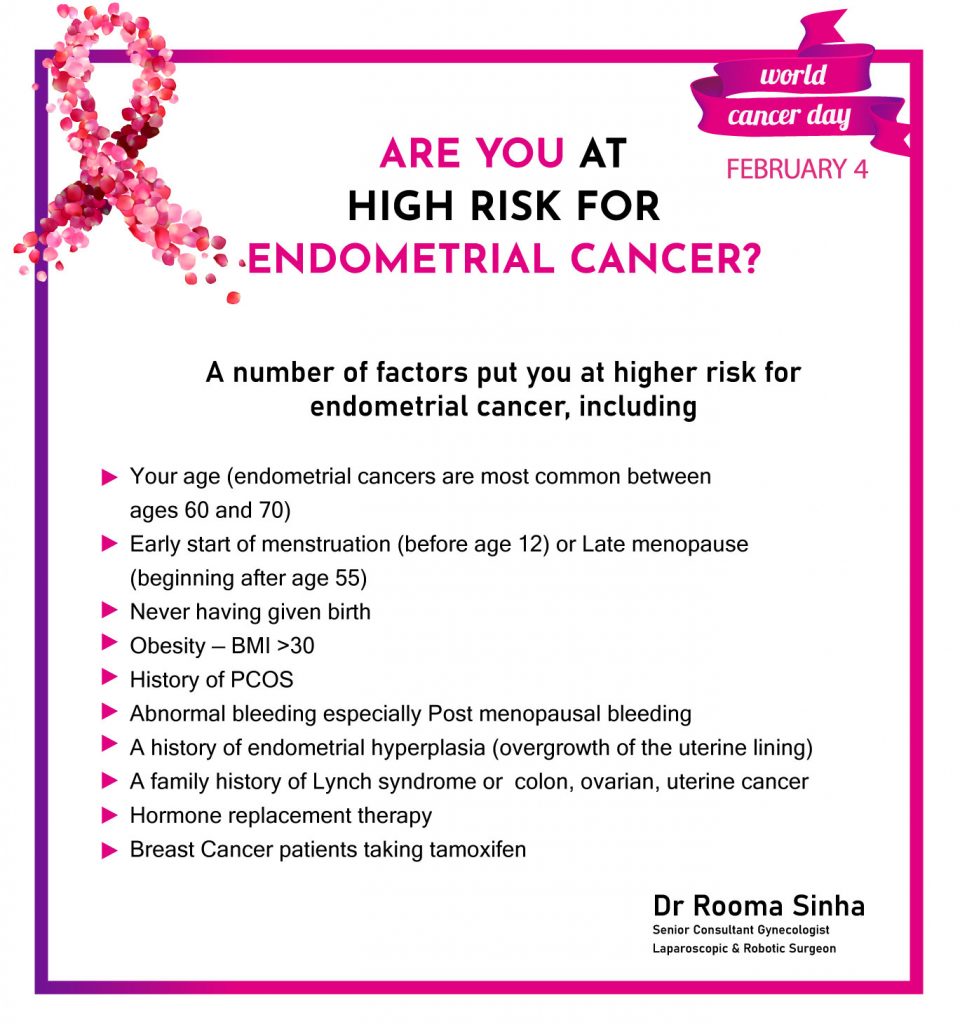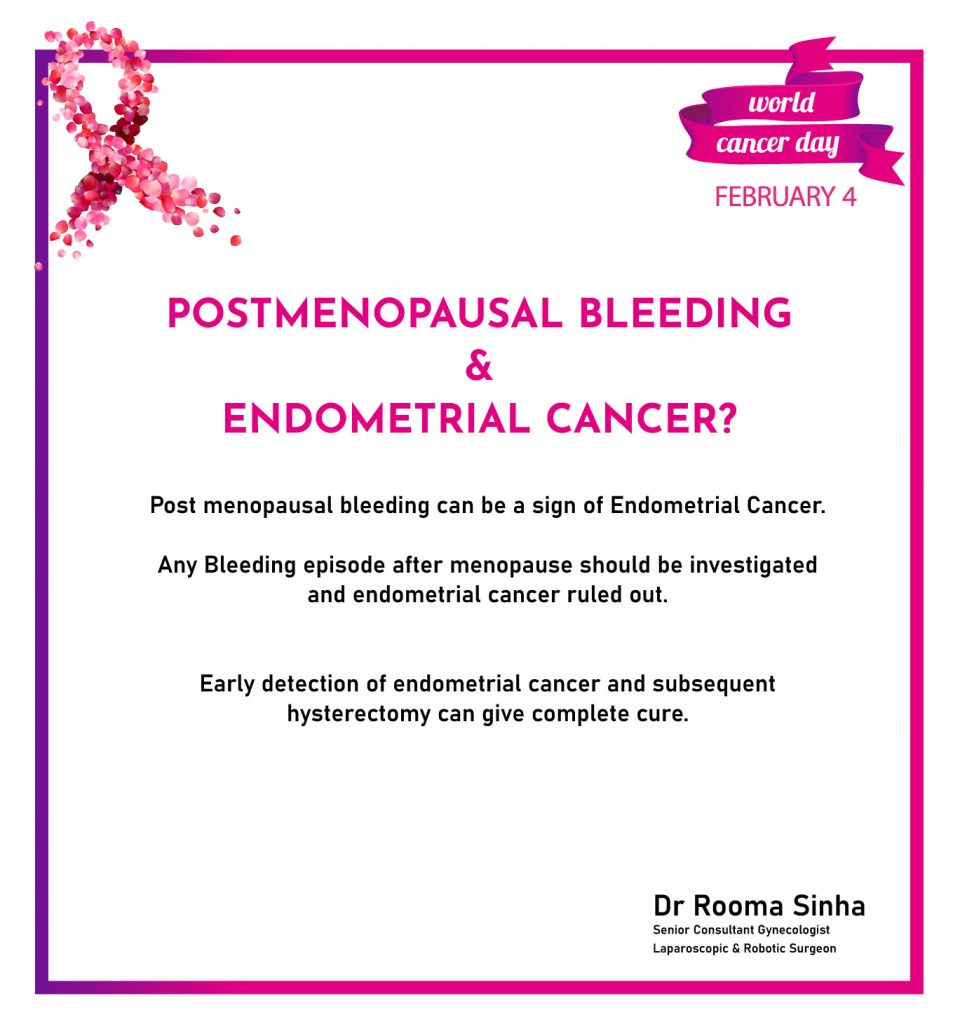If his abnormality persists then one needs to become concerned and consult a gynecologist.


Even a single episode of post menopausal bleeding should be investigated by the gynaecologist. This needs pelvic examination, pap smear, Ultrasound. A biopsy of the endometrial lining should be done preferably by hysteroscopic guidance.
Causes of Post menopausal bleeding?
- Atrophy of endometrium
- Endometrial hyperplasis
- Endometrial polyps
- Endometrial cancer
- Presence of fibroids
Causes
There are many causes of abnormal bleeding. Some of these problems are not serious and can be easily treated by counseling or medications. Others can be more serious. All should be checked. This can occur when the body makes too much or not enough of a certain hormone. Problems linked to some birth control methods, like intrauterine devices or oral contractive pills can also cause abnormal bleeding. Pregnancy related causes are also responsible for abnormal bleeding. Sometimes tumours in the uterus or even cancer can be the reason.
Diagnosis
1. Ultrasound— To look for any thickness of endometrium or ovarian cysts. Any thickness of more than 4 mm in a post menopausal woman warrants further investigations.
2. Hysteroscopy- Biopsy —This is the gold standard in diagnosis. A thin, lighted tube with a camera at the end, called a hysteroscope, is inserted through the vagina and the opening of the cervix. The hysteroscope allows the inside of the uterus to be seen and directed biopsy is taken and sent to lab for further assessment. If only D&C is done without hysteroscopy then there is a chance that intrauterine pathology may be missed especially polyps.
Treatment
Noncancerous conditions can be managed conservatively by removing polyps and further management is usually with medicines.
Simple hyperplasia can be managed with medical therapy. Complex hyperplasia with atypia has higher chances of leading to endometrial cancer and is best treated by performing hysterectomy. Laparoscopic Hysterectomy is the method of choice.
Endometrial cancer is treated with surgery (hysterectomy along with removal pelvic and para aortic lymph nodes). If the disease is detected early, cure rates are good. Some advance cases may require radiotherapy and chemotherapy. Follow up after surgery is as essential as the surgery itself.
Risk Factors for Endometrial cancer
1. Advancing age
2. Early menarche and late menopause
3. Infertility & treatment for infertility
4. History of delayed cycles
5. Long-term use of hormones (estrogen)
6. Obesity
7. Polycystic ovarian syndrome(PCOS)
8. Treatment with TAMOXIFENE; a drug used for breast cancer

